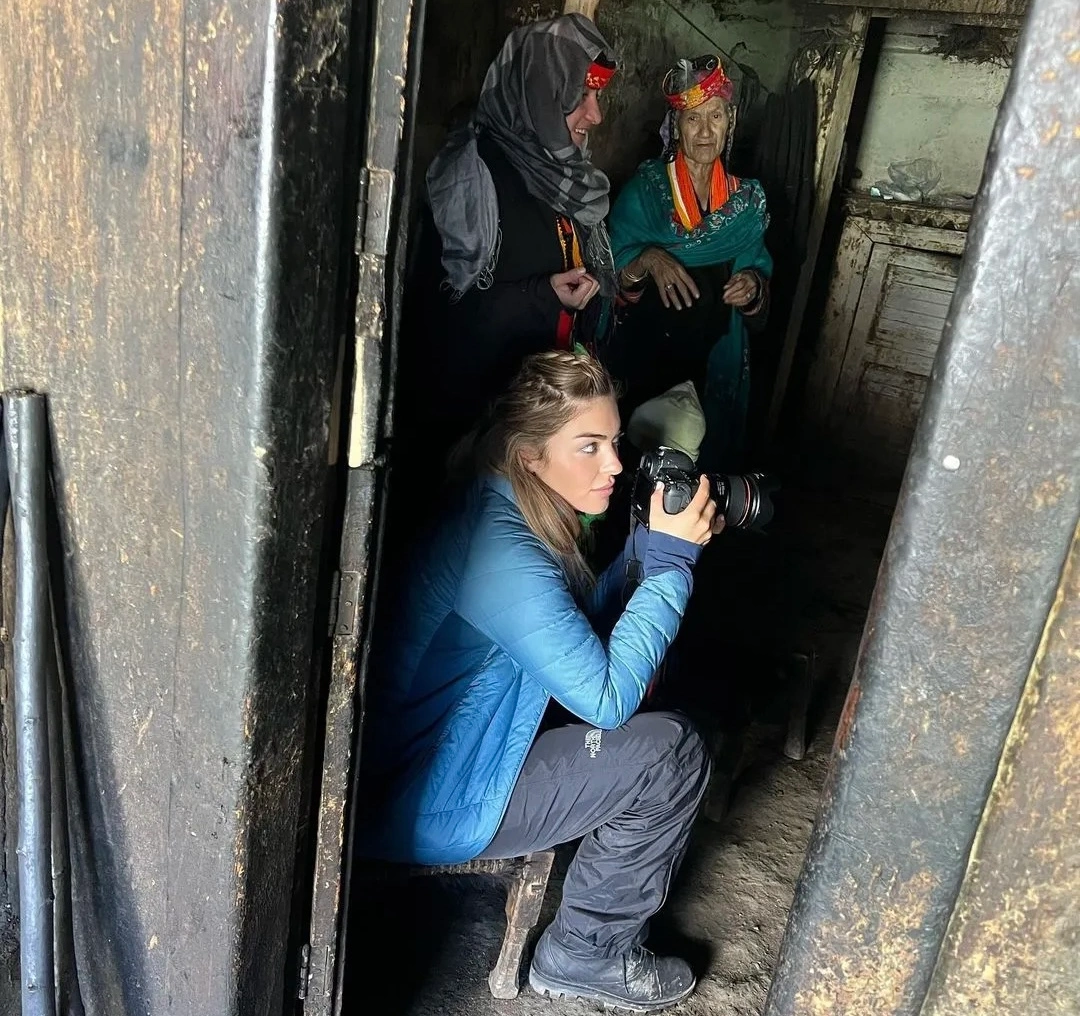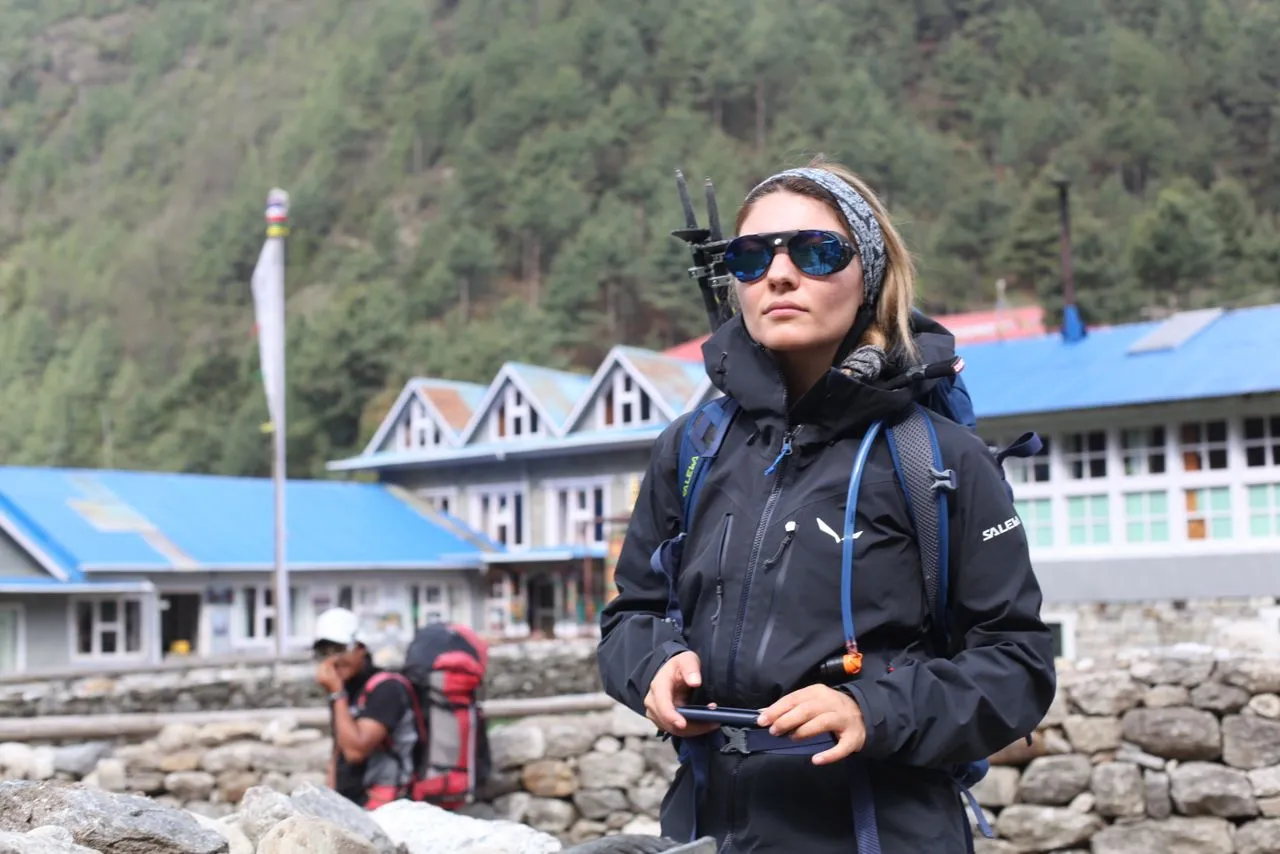About four years ago, during a filmmaking workshop I attended, in those initial introductions where they asked where we were from and what our motivations and goals were, there was a girl who, whenever she wanted to say she was from Pakistan, immediately used another name.
She was a kind and polite girl with blue eyes and golden hair, and we later became close friends. Her appearance was different from the image we see of Pakistani women in the media, which made me listen carefully to the other name she used. That word was “Kalash.” I did a brief internet search. The first things I saw were colorful people: women similar to my classmates in beautiful traditional clothes, images of various celebrations, and Princess Diana’s trip to the region in the 1990s!
There were many narratives about the origins of this tribe, claiming they were descendants of Alexander the Great’s army and had settled in this region since ancient times. This myth largely arose due to the physical differences between the Kalash people and other inhabitants of the region; however, upon further reading, I understood that centuries ago, they had settled in this area in a mass migration towards the Iranian plateau.
The Kalash region is not easily accessible, and its route is challenging to traverse, which has resulted in less racial mixing among its people and has garnered interest from genetic scientists. However, this historical narrative also faces numerous academic criticisms. In fact, the history of the Kalash is a subject of academic debate among historians, linguists, anthropologists, religious scholars, and genetic scientists.
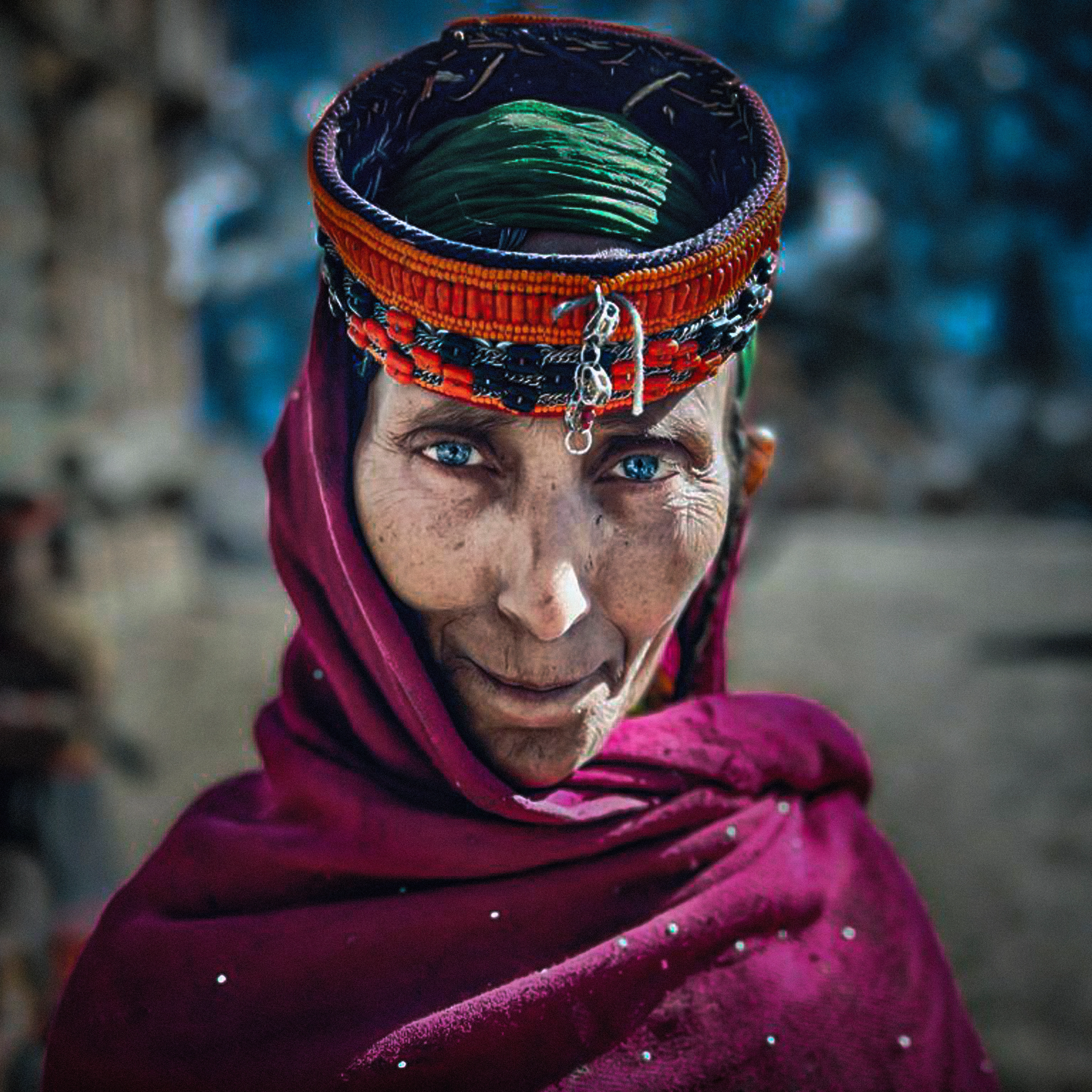
Michael Witzel is a professor at Harvard University who has conducted research on religions and languages in the Hindu Kush region. He considers their religion to be a kind of ancient Hinduism with multiple deities and has collected narratives about the wars and peace among these gods. These narratives are very complex and require prior knowledge of myths to understand; however, at that moment, I became immersed in them.
Another anthropologist, Wien McGhee, lived among the Kalash people for three years. He begins his book with a memory in which he was present: the government occupies the lands of the Kalash people, clashes occur among the men of the region, women come out of the valleys, and large female protests are organized in the Chitral province. In Chitral, houses have high walls where women are confined, a fact well-known among Pakistanis themselves. Therefore, the free movement of women and their progress to the forefront has created a strange situation.
The men at the checkpoint were not willing to negotiate with the women; however, when the women suddenly sit down and barricade themselves, the men retreat and release the detained Kalash men. His doctoral thesis is about the kinship system in the Kalash and marriage-elopement, the same thing that drew me to the Kalash to hear the story of these women.
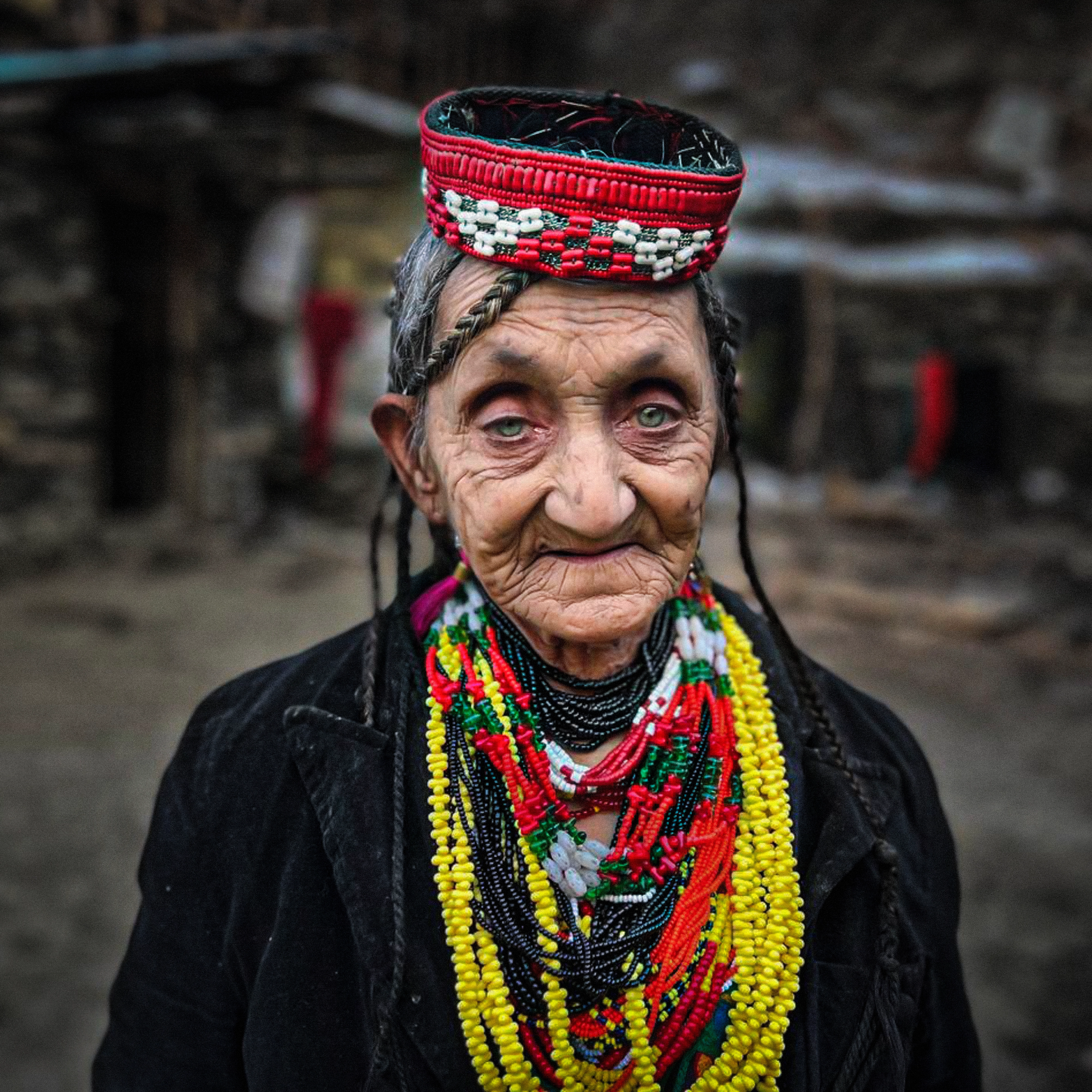
When I arrived in Islamabad, there was a large protest underway. In fact, these protests were organized by extremist Islamists in support of the Taliban to pressure the Pakistani government to officially support the Taliban. Tensions were high everywhere. The driver entrusted me to set up my camera, and if I filmed with my mobile phone, it had to be discreet. At first, it seemed a bit exaggerated to me; but when we passed through numerous checkpoints where the guns were pointed at the passengers the whole time, I realized that the caution was not unwarranted.
The driver explained that since the rapid advance of the Taliban in Afghanistan, extremists here had also regained power, and many women in rural areas were again wearing headscarves. Eventually, I bought a headscarf too and put it on to attract less attention. I couldn’t see well or breathe properly with those mesh veils. It felt like I was looking at the world from behind the bars of a prison window.
I saw women sitting by the roadside in their headscarves, waiting for a van, which serves as the local women’s taxi, to stop and pick them up. Everything was gloomy and gray, and the first news I heard was the fall of Kabul; but when I reached Kalash, seeing the lush green landscape, vibrant colors, and women smiling as they went about their business, I felt a sense of joy. I took off the headscarf just as I knew that on the other side of the border, women would soon have to put it back on by force.
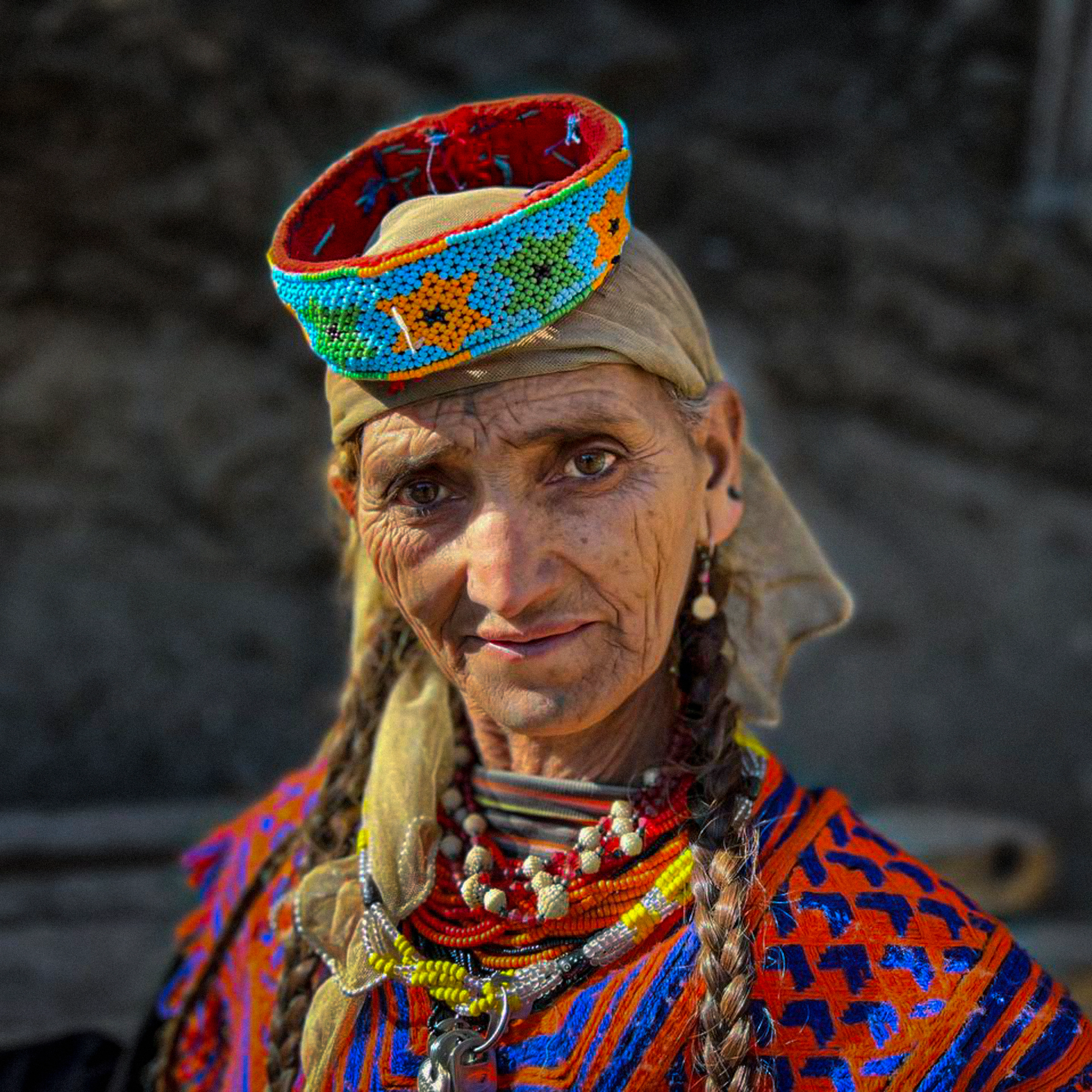
Several women came to greet me and quickly gave me a room. The next day, I felt so comfortable with these women, as if I had been among them for years. All the doors of the houses were open, and I went from one house to another. I realized my understanding of the term “marriage-flight” was incorrect. In this society, women could change their life partners whenever they wanted. This change of spouse does not require any special rituals, but sometimes a woman informs her husband of her decision through a letter. Generally, formal announcements of such decisions are made during celebrations. However, the structure of polygamous female households is not common, and when individuals are in a relationship, they commit within a framework. Pre-marital sexual relations are also common.
Marriage in this society is exogamous; that is, individuals generally enter into marital agreements with those outside their valley. Generally, society does not impose strict rules in such cases.
I asked a middle-aged woman who was busy baking bread if infidelity had any meaning in their society. Her answer was interesting to me: a woman commits infidelity when she lives with someone she doesn’t love. The subtitle of Vine Magi’s book is “Our Women Are Free,” a phrase I had heard repeatedly from Kalash men as a cultural slogan of their society, and its meaning became clearer to me during my few days of interaction with them. Women managed internal village affairs. There was a special solidarity among women, and most tasks were done collectively.
In the villages, there was also a place called “Bashalini,” where women spent their menstruation period. In other cultures I have encountered in the East, Bashalini is a place where women are forced out of society because they are considered impure. However, the women’s movements in this region gave a different function and meaning to Bashalini. Here, women go there not only during menstruation but also during pregnancy.
Bashalini in Kalash culture was a system of female care. Indeed, during this period, especially during pregnancy, women rest and are served nourishing meals prepared by other women. The care of children and household matters during this time is entrusted to other women.
In Kalash society, in cases such as financial decisions or marriage negotiations, where it may seem that men are directly involved, it is the women who make the decisions. The tradition of “Shirbaha” also prevailed there.
In the first marriage, the man pays a certain amount to the father, and the rule is that if a woman leaves her husband, she must return twice that amount to her previous husband. Dowry also has another meaning; the initial household items are donated to the woman by the other women, and a new household is set up through female cooperation.
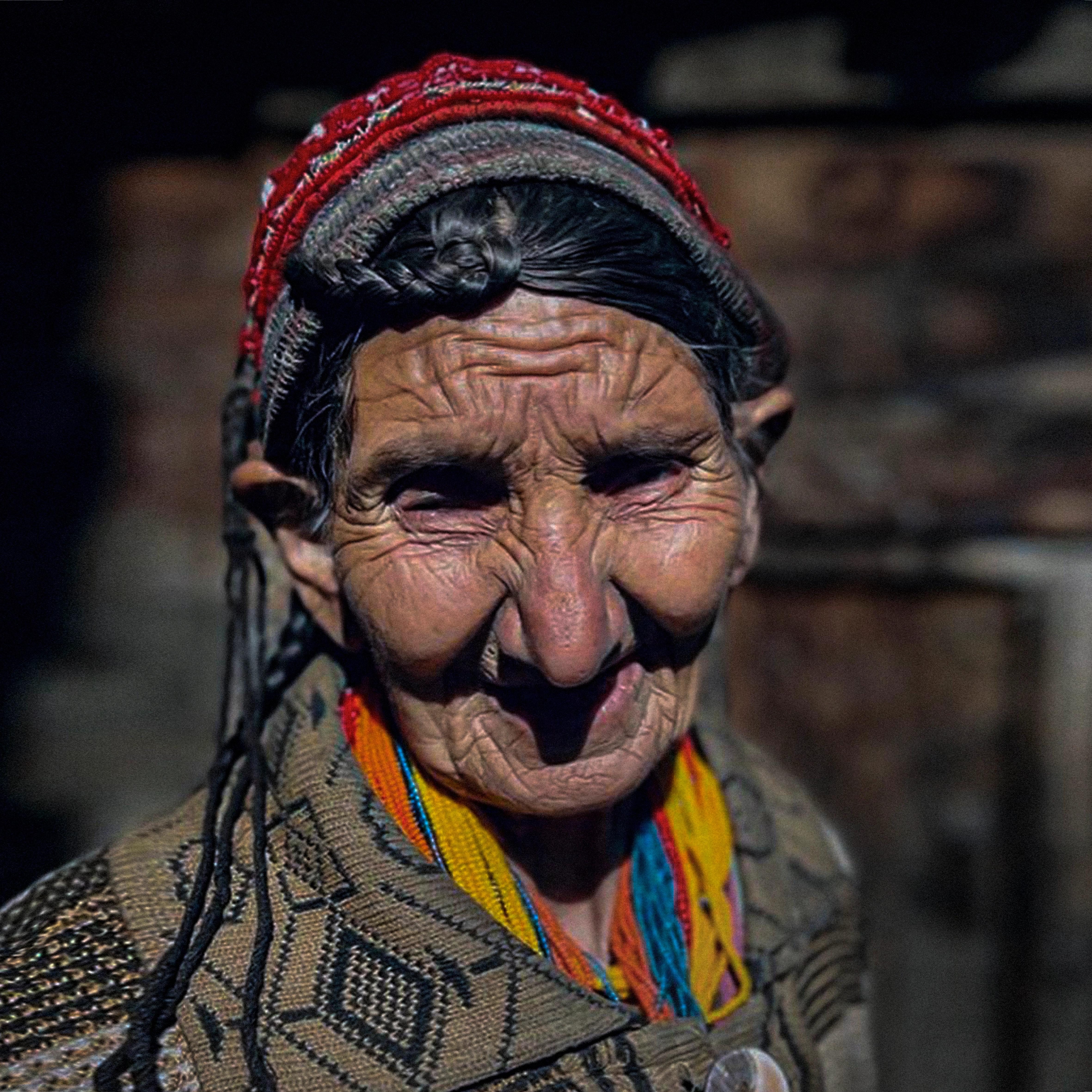
This society is strangely distant from competition and extravagance, and what is taken very seriously are mourning and death ceremonies. These ceremonies last for several days and involve many sacrifices, with the deceased being buried with valuable items made of gold and silver. However, due to the frequent grave-robbing by neighboring communities, this tradition is dwindling.
In Kalash society, violence against women was very rare, and physical punishment of women by fathers and husbands was considered disgraceful. There were strict restrictions on women leaving the valley alone; however, due to the fact that girls went to cities for education, this rule has become less strict. Women did not participate in agricultural and livestock activities, and traditional women’s work involved making handicrafts and traditional clothing.
Although the usual lack of women’s participation in economic activities often opens the door to controlling women, I did not hear any complaints about pressuring women for financial matters; but generally, the economic situation in the region is declining, and everyone is facing financial difficulties. However, these matters are relative and are related not only to social practices but also to individual attitudes; but systematic violence against women does not exist.
However, it seems to me that there is a form of hidden violence against women concerning the marriage of Kalash women to Muslim men. If such an event occurs, women must leave the valley. This order has been given by the religious leader of the Kalash community because women must convert to Islam after marriage. The Kalash define themselves through Kalash religion and culture, and this decision has been made to preserve the Kalash population, significantly affecting the lives of women. Among women, there are heartbreaking stories about this prohibition.
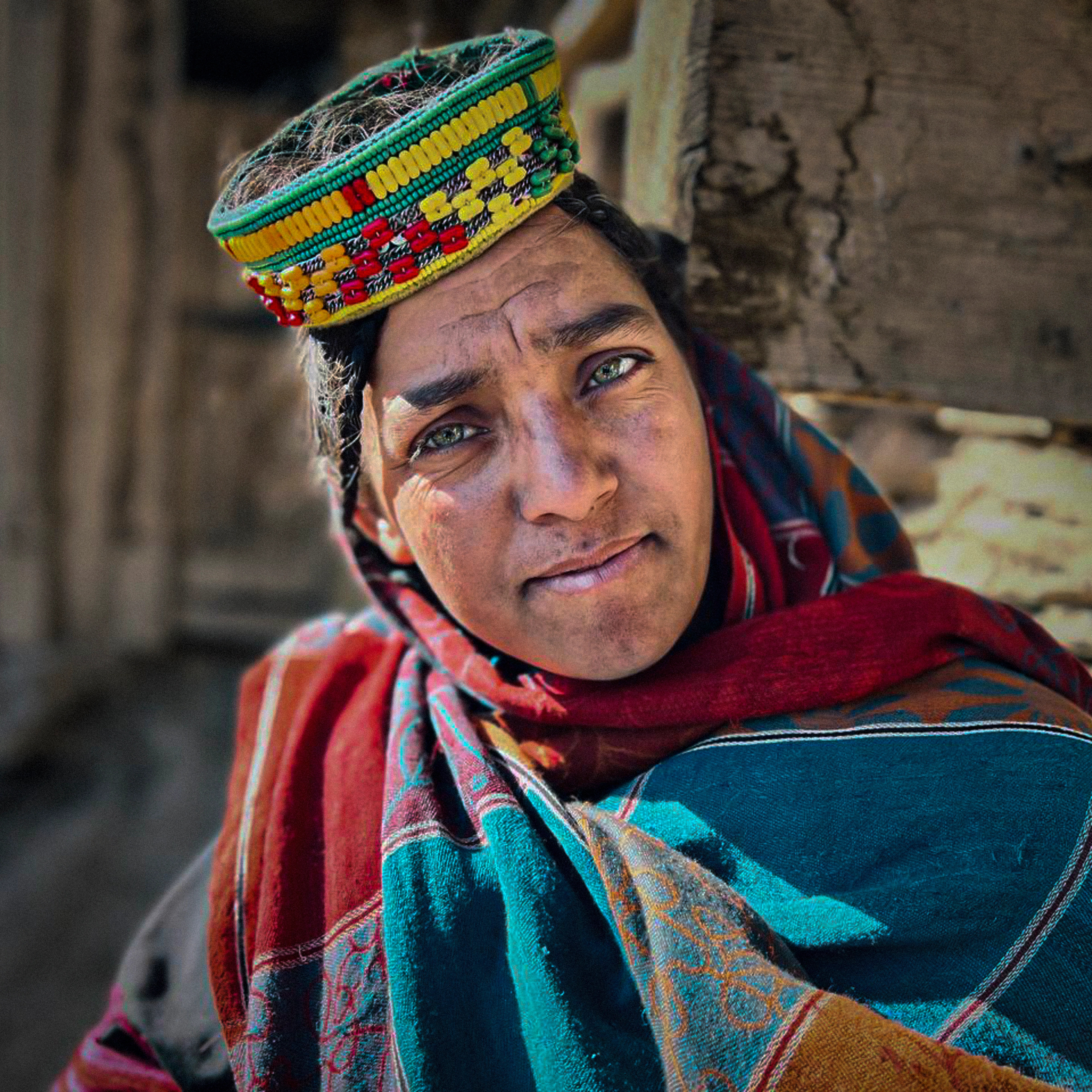
They showed me their tearful eyes albums, photos of mothers and sisters whom they either rarely saw or did not see at all. These letters and photos were exchanged secretly. In this community, which is simple and far from war and violence, this rule is taken seriously, and deviation from it results in social ostracism. Generally, there is no way back for women who have left the valley because converting from Islam is punishable by death. They refuse to accept returned women to avoid conflict with their powerful neighboring community of Muslim women.
As another example, the Kalash community is somewhat communally managed. Agricultural lands, forests, and livestock belong to all members of a valley. The same goes for families. There are no nuclear families, and children are more affiliated with the community than with their families. Decision-making regarding child custody, although initially with mothers, is generally influenced by social pressure in interfaith marriages to prevent children from leaving the valleys.
The pains of women in the Kalash region were not limited to these. During my journey, I went to the house of one of the women to buy handicrafts. She had been married twice. Her first husband had been killed in a clash with Taliban forces before they officially came to power. Despite the fact that her first husband had left her long ago, she was still mourning him.
The young girls of the Kalash region easily pursued education, and many of them wanted to leave the valleys for university studies. However, they generally adhered to the values of their society and took pride in the freedom of women in their community. The elderly women of the Kalash were also a source of folklore stories in the region. They sat in front of their doors and taught children dances and songs. Part of the joy of this community is intertwined with the rhythm and melody of their culture. Most of these songs and dances belong to celebrations. When you hear the rhythmic dance and the joyful tunes of the songs, they don’t seem like part of a worship ceremony. Of course, the youth of the Kalash community do not view them as a ceremonial ritual either.
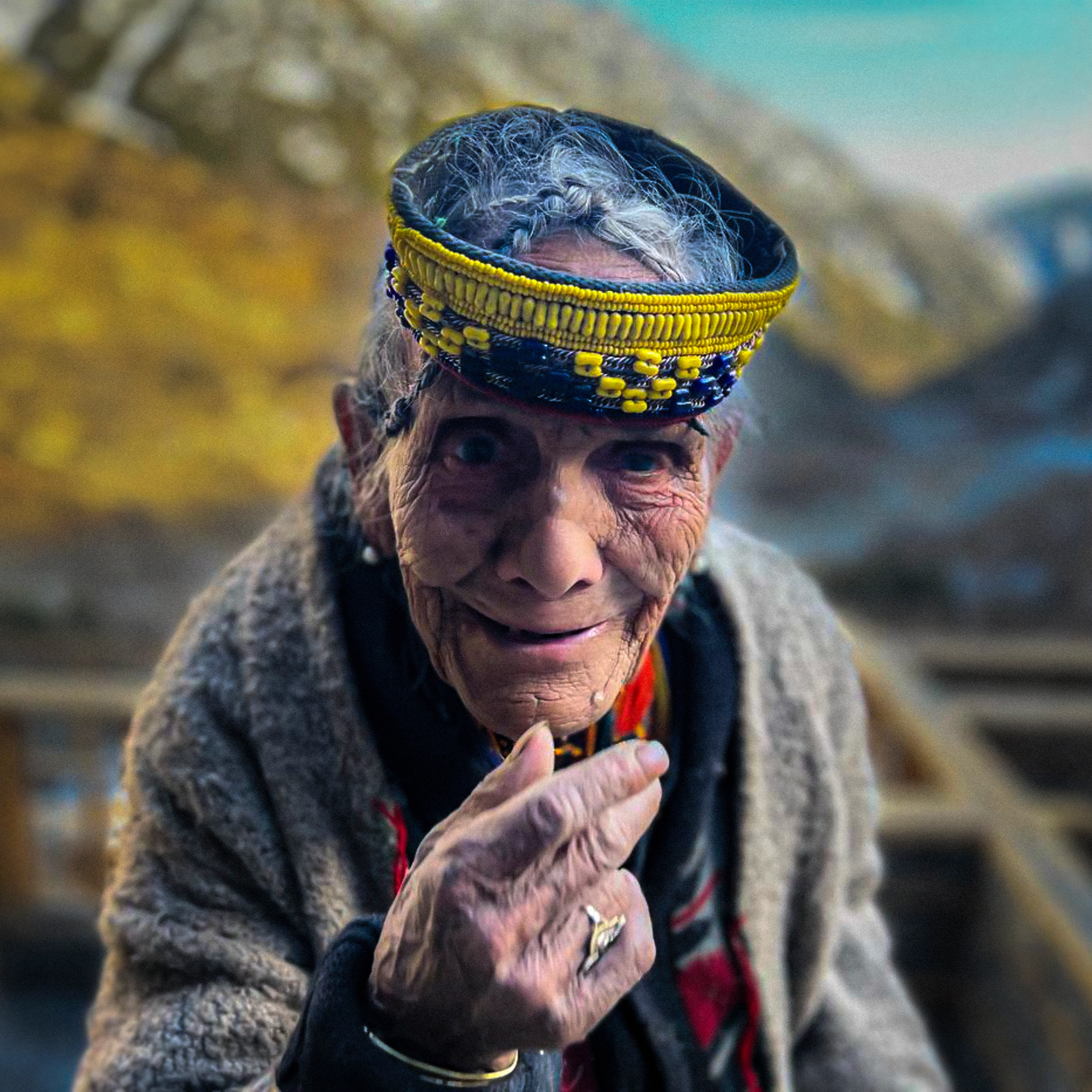
During the end-of-harvest thanksgiving celebration, their festivities resemble medieval European carnivals. All rules and prohibitions are suspended, social hierarchies dissolve, women dress in men’s clothing, and men wear women’s clothing, and the revelry continues for three consecutive nights. Participation in this celebration, according to tradition, is open to everyone regardless of their religion. While this celebration has religious roots and sacrifices are made to the gods, nowadays, it has become a form of tourism in the region, attracting not only Pakistanis but also visitors from other countries. The elders take pride in the grandeur of these festivities, but those in middle age who are responsible for the community’s finances also embrace them.
The reason for this acceptance may be the dwindling financial resources of the community due to land appropriation, a policy that has been ongoing for decades and in essence puts pressure on them to change their way of life. The youth are happy that these celebrations provide an opportunity to become acquainted with other cultures and engage in cultural exchange.
I intentionally traveled when there was no celebration taking place. A time when the community is busy with daily life and observation and conversation are easier; however, they insistently invited me to one of their official celebrations. In those complicated circumstances where events were uncertain and the indigenous people even feared a Taliban attack on the area, filming could have been dangerous. The driver was also apprehensive and encountered frequent inspections. Therefore, I limited myself to writing the story of the women and capturing them in photographs for later. I hope to narrate the story of the women of this community with a video camera on my next trip.

